Antonovych, Volodymyr
Antonovych, Volodymyr [Антонович, Володимир; Antonovyč], b 18 January 1834 in Makhnivka, Kyiv gubernia, d 21 March 1908 in Kyiv. Historian, archeographer, archeologist, professor of history at Kyiv University from 1878, editor in chief of the publications of the Kyiv Archeographic Commission, patron and head (from 1881) of the Historical Society of Nestor the Chronicler in Kyiv, and organizer of archeological conferences in Ukraine, father of Dmytro Antonovych. He collected, edited with introductions, and published the voluminous Arkhiv Iugo-Zapadnoi Rossii (in 8 series, 1859–1914), which deals with the history of Right-Bank Ukraine in the 16th-18th century. Antonovych's introductory articles to these volumes are concerned with the history of the Cossacks, the Haidamaka uprisings, the peasantry, nobility, gentry, towns and burghers, colonization, and the church: ‘O proiskhozhdennii kozachestva’ (On the Origin of the Cossacks, 1863); ‘Ob okolichnoi shliakhte’ (The Neighboring Gentry, 1867); ‘Posledniia vremena kozachestva na pravom beregu Dnepra po aktam 1679–1716 g.’ (The Last Days of the Cossacks on the Dnipro’s Right Bank According to Documents of 1679–1716, 1868); ‘O gaidamachestve’ (On the Haidamaka Movement, 1876); ‘O mnimom krest'ianskom vozstanii na Volyni v 1789 g.’ (On the Supposed Peasant Uprising in Volhynia in 1789, 1902); ‘O krest'ianakh v Iugo-Zapadnoi Rossii po aktam 1770–1798 gg.’ (On the Peasants in Southwestern Russia According to Documents of 1770–98, 1870); ‘O proiskhozhdenii shliakhetskikh rodov v Iugo-Zapadnoi Rossii’ (On the Origin of Noble Family Lines in Southwestern Russia, 1867); ‘O gorodakh v Iugo-Zapadnoi Rossii po aktam 1432–1798 g.’ (On the Towns of Southwestern Russia According to Documents of 1432–1798, 1870); ‘Ob Unii i sostoianii Pravoslavnoi Tserkvi s poloviny XVII do kontsa XVIII v.’ (On the [Church] Union and the State of the Orthodox Church from the Middle of the 17th to the End of the 18th Century, 1871).
Other important works by Antonovych are Ocherki istorii Velikogo Kniazhestva Litovskogo do smerti v. kn. Ol'gerda (An Outline of the History of the Grand Duchy of Lithuania up to the Death of the Grand Prince Algirdas, 1877–8); ‘Kyiv, ego sud'ba i znachenie v XIV–XVI st.’ (Kyiv, Its Fate and Importance from the 14th to the 16th Century), Kievskaia starina, no. 1 (1882); ‘Uman'skii sotnik Ivan Gonta’ (The Captain of Uman, Ivan Gonta) Kievskaia starina, no. 11 (1882); and Monografii po istorii Zapadnoi i Iugo-Zapadnoi Rossii (Monographs on the History of Western and Southwestern Russia, 1885).
Antonovych edited several collections of historical documents, such as Sbornik materialov dlia istoricheskoi topografii Kieva i ego okrestnostei (Collection of Materials for the Historical Topography of Kyiv and Its Surrounding Areas, 1874); Sbornik letopisei, otnosiashchikhsia k istorii Iuzhnoi i Zapadnoi Rossii (Collection of Chronicles Pertaining to the History of Southern and Western Russia, 1888); Memuary, otnosiashchiesia k istorii Iuzhnoi Rusi (Memoirs Pertaining to the History of Southern Rus', 2 vols, 1890–6); ‘Dnevnik Stanislava Osvetsima (1643–51)’ (The Diary of Stanisław Oświęcim [1643–51]), Kievskaia starina, nos. 1–2, 5–6, 9–12 (1882), and separately. He was responsible for the historical annotations to Mykhailo Drahomanov's Istoricheskie pesni malorusskogo naroda (The Historical Songs of the Little Russian People, I–II, 1874–5). His principal works in archeology are Raskopki v zemle drevlian (Excavations in the Derevlianian Land, 1893); Arkheologicheskaia karta Kievskoi gubernii (An Archeological Map of Kyiv Gubernia, 1895); Arkheologicheskaia karta Volynskoi gubernii (An Archeological Map of Volhynia Gubernia, 1900); and Opisanie monet i medalei, khraniashchikhsia v numizmaticheskom muzee Universiteta sv. Vladimira (A Description of the Coins and Medals Preserved at the Numismatic Museum of Saint Vladimir University, 1896).
Antonovych was a major representative of the populist school in Ukrainian historiography. He founded the so-called Kyivan school of historians, which consisted of his students at Kyiv University (among them, Dmytro Bahalii, Petr Golubovsky, Mykhailo Hrushevsky, Mytrofan Dovnar-Zapolsky, and Ivan Lynnychenko). These historians laid the foundations of modern Ukrainian historiography. In his writings Antonovych avoided synthetic theories and concentrated on documentary research. Only in his more popular lectures, such as Besidy pro chasy kozats'ki na Ukraïni (Conversations on the Cossack Period in Ukraine, 1897; 2nd ed, Vyklady pro chasy kozats'ki na Ukraïni [Lectures on the Cossack Period in Ukraine], 1912), did Antonovych give a general survey of Ukrainian history from the origin of the Cossacks.
As a member of the Khlopoman movement, Antonovych published a reply to the Polish journalist Z. Fisz (pseud T. Padalica), entitled ‘Moia ispoved’ (My Confession), in Osnova (Saint petersburg), 1 (1862), in which he defended the ideology of the ‘peasant lovers.’ He was head of the Old Hromada of Kyiv. Through his initiative the Poles and Ukrainians in the Galician Diet reached an agreement in 1890. He played an important role in Mykhailo Hrushevsky's move to Lviv and the city's emergence as an important center of Ukrainian learning and publishing. For almost half a century Antonovych played a leading role in Ukrainian civic and political life. He wrote over 300 scholarly studies.
BIBLIOGRAPHY
Tomashivs'kyi, S. Volodymyr Antonovych (Lviv 1907)
Dovnar-Zapol'skii, M. ‘Istoricheskie vzgliady V.B. Antonovicha,’ Chteniia Nestora, 19 (1909)
Hrushevs'kyi, M. ‘Volodymyr Antonovych: Osnovni ideï ioho tvorchosty i diial'nosty,’ ZNTK, 3 (1909)
Pavluts'kyi, H. ‘Antonovych iak arkheoloh,’ ZNTK, 3 (1909)
Loboda, A. ‘Pratsi Antonovycha po etnohrafiï ta literaturi,’ ZNTK, 3 (1909); Ukraïna, 5 (1928)
Bahalii, D.I. (ed). Materiialy dlia biohrafiï V.B. Antonovycha (Kyiv 1929)
Antonovych, V.B. Tvory, 1 (Kyiv 1932)
Doroshenko, D. Volodymyr Antonovych: Ioho zhyttia i naukova ta hromads'ka diial'nist' (Prague 1942)
———. A Survey of Ukrainian Historiography (New York 1957)
Bilenky, Serhiy (ed). Fashioning Modern Ukraine: Selected Writings of Mykola Kostomarov, Volodymyr Antonovych, and Mykhailo Drahomanov (Toronto and Edmonton 2013)
Oleksander Ohloblyn
[This article originally appeared in the Encyclopedia of Ukraine, vol. 1 (1984).]
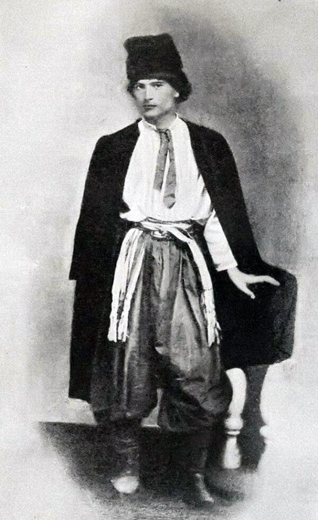
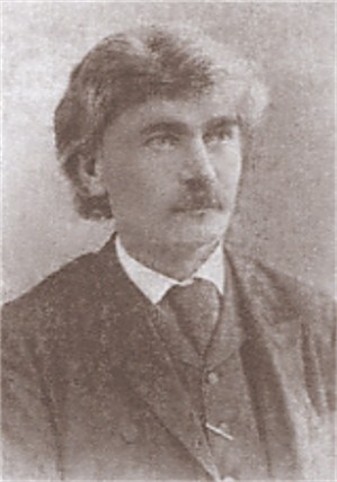
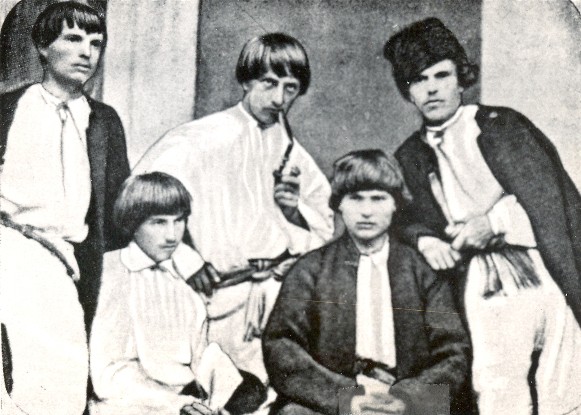
.jpg)
.jpg)
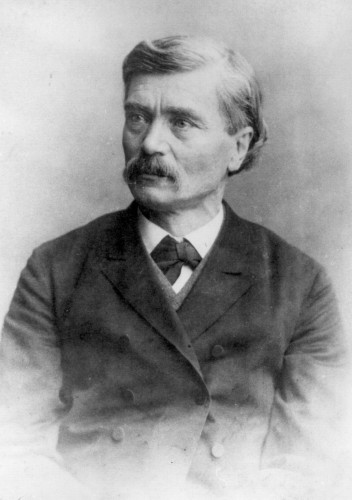
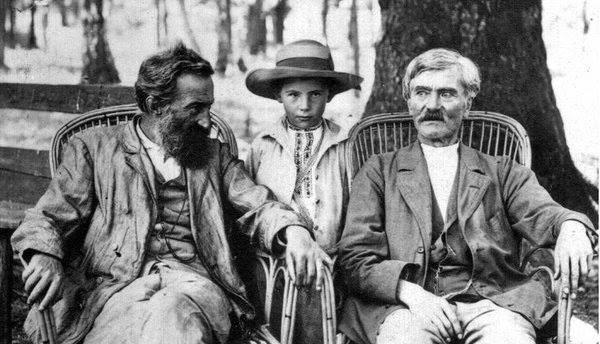
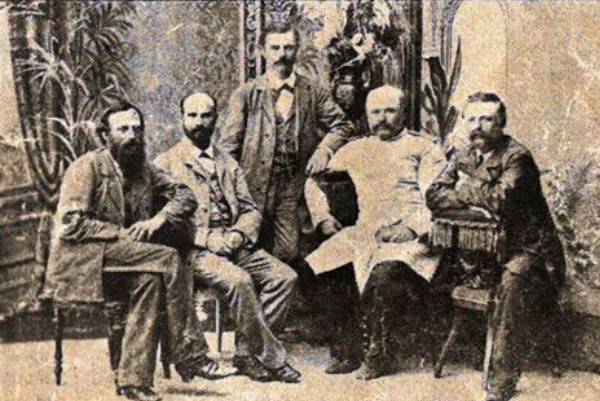
.jpg)